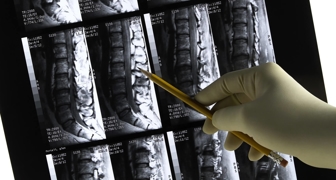NTSB Releases Report on New Orleans Barge Collision That Killed 3

Last year, there was a massive barge collision on the Mississippi River that killed three crew members just west of New Orleans. The families of those men called Arnold & Itkin for help holding the at-fault parties accountable. Today, the National Transportation Safety Board (NTSB) released a report that puts the blame for the incident on two companies, with the lion’s share of the blame on one of the vessels.
First, some context:
Before dawn on January 26 of last year, 2 towboats approached each other on the Mississippi River near Hahnville: the RC Creppel and the Cooperative Spirit. The Cooperative Spirit was towing 40 barges, and the RC Creppel was towing 2. As both vessels approached a bend in the river, they briefly communicated to develop a passing plan. The RC Creppel disclosed that it was towing 2 barges, but the Cooperative Spirit did not mention that it was towing 20x that number.
However, neither vessel’s AIS (Automatic Identification System) was transmitting accurate information about each vessel’s size. The RC Creppel’s signal indicated that it was a 69-foot vessel, but at the time it had a 450-foot tow. The Cooperative Spirit’s AIS presets were even worse, transmitting that it was a 200-foot vessel but it’s actual tow was 1,600 feet at the time.
As a result, both vessels collided at 5:33 am. The sheer size and mass of the Cooperative Spirit and its barges meant the much smaller RC Creppel suffered far worse damage. It quickly capsized and sank, with only one deckhand able to escape. A third vessel ended up colliding with the barges, but it had forewarning of the situation and was able to minimize damage. Sadly, the rest of the RC Creppel’s crew—three of them—went down with the ship and were unable to be rescued.
The Root Cause of the Fatal Towboat Collision
Today’s NTSB report concluded that a combination of poor communication and incorrect AIS presets were the cause of this tragic accident. The incident gave the NTSB cause to once again recommend regulations for AIS broadcast settings, which would be the Coast Guard’s duty to enforce. “These safety recommendations need to be implemented to save lives and prevent maritime tragedies,” the NTSB said in their report.
Since the families of the crew called us, our maritime injury lawyers have asserted that their deaths were 100% preventable and ultimately the fault of both companies’ policies. It was the AIS broadcast settings that prevented both vessels from accurately assessing their situation, and it ultimately cost our clients’ loved ones their lives. It’s unacceptable to us that neither company has taken responsibility for the lives they’ve destroyed with their negligence, which is why we’re seeking the maximum amount under the law to hold them accountable and help our clients rebuild their lives.
No matter what.
- Categories
- Boating Accidents,
- Offshore/Maritime Injuries


